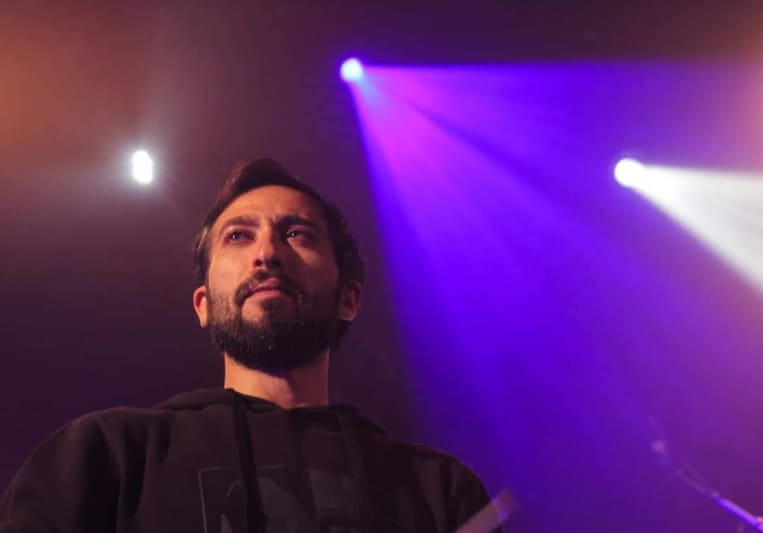
I have a Feature Film and a TV Serie check it on my website www.redamourah.com
I'm Reda.M, a talented film score composer, my workflow cover from a single instrument track in Stereo to a full orchestral and hybrid music with ethnical instruments and voices mixed in Dolby Atmos.
Would love to hear from you. Click the contact button above to get in touch.
Interview with Reda M
Q: Tell us about a project you worked on you are especially proud of and why. What was your role?
A: La Berceuse Rouge
Q: What questions do customers most commonly ask you? What's your answer?
A: after listening to the 1st music for a random scene, most of the time the question is : can I use the music that you composed for that scene as a main theme for the movie ? No, be patient, I just started my work.
Q: What's the biggest misconception about what you do?
A: It is true that there is often confusion between exclusive licensing, regular licensing, and other forms of licensing. Additionally, it is important to note that hiring a composer does not necessarily mean that the buyer becomes the composer, as the copyright and moral ownership of the music remains with the composer. These misunderstandings can lead to legal issues and miscommunications between parties, underscoring the importance of having a clear understanding of music licensing agreements and copyright laws.
Q: What advice do you have for a customer looking to hire a provider like you?
A: let's make a bet, if you don't like my work I pay you back but if you call me again, I double my price. that's happens only if you want to bet ;)
Q: If you were on a desert island and could take just 5 pieces of gear, what would they be?
A: A Laptop and a DT990 250ohm, 2 monitors, and a Piano
Q: What's your strongest skill?
A: intel
Q: What's your typical work process?
A: The film production process entails a multitude of essential steps that require a high degree of professionalism and attention to detail. These steps include carefully reading the script, conducting insightful interviews with the director, and establishing a new common language that will facilitate effective communication. Furthermore, it is essential to discuss the references that have inspired the director's vision for the film, spot the cues that are integral to the movie, and cut the movie into cues with BTC on videos. Once these tasks have been completed, the process moves on to maquetting, validation, recording, and mixing on a premix of the movie. The subsequent stage involves debriefing with the director to ensure that final revisions are made in accordance with their creative vision. Thorough revisions are necessary to ensure that the movie meets the highest standards of quality. Once the revisions have been made, validation and mastering are carried out to finalize the production process.
Q: Tell us about your studio setup.
A: I work in a kind of workshop
Q: Describe the most common type of work you do for your clients.
A: Producing and composing film scores
Q: Analog or digital and why?
A: Digital for sure because of the deadlines and the budgets, and digital isn't that bad, I had been hypnotized many time when mixing with an Altiverb in 5.1. But the mastering is better on Analog Gear this is sure
Q: What's your 'promise' to your clients?
A: They will panic and stress lol but I will honormy contract, if they don't panic and stress that mean that they are not enough invested in the project.
Q: Is there anyone on SoundBetter you know and would recommend to your clients?
A: I'm new here, i heard about this website on a forum, so I know nobody here, sorry.
Q: What do you like most about your job?
A: Traveling in the story of each script, creating a workflow adapted to a production, the face that make the actors and the director when they hear for the 1st time the music
Q: What questions do you ask prospective clients?
A: What is the length of the movie and the deadline ? Then I have a list of questions adapted for each kind of project.
Q: What was your career path? How long have you been doing this?
A: All my life
Q: How would you describe your style?
A: Human, because I try to interact with the intellect, emotions, intuition and sense. Those characteristics are human
Q: Which artist would you like to work with and why?
A: Tina Guo, because she have the best cello that I heard in my life, and she is a great cello player, I like the expression that she have.
Q: Can you share one music production tip?
A: Yes, prepar your final session in mockup with printed click on a disabled track during all the process of the production give you the opportunity to add or modify anything in the music at any phase of the production process.
Q: What type of music do you usually work on?
A: There is no type of music except folkloric and academic type. Everything else have cultural codes that you need to respect to get the color that you are looking for.
Q: What do you bring to a song?
A: Life
Q: What other musicians or music production professionals inspire you?
A: Hans Zimmer, James Hörner, Danny Elfman, Puccini, Astor Piazzola, Pat Metheny, Chick Corea, Cecilia Bartoli....



